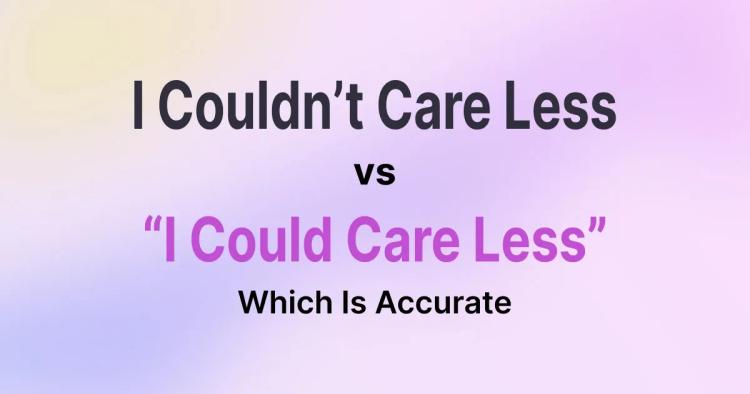In today's ever-evolving digital landscape, the interplay between human creativity and Artificial Intelligence (AI) has reshaped the way we approach writing. AI has emerged as a powerful ally for writers, offering a multitude of tools and capabilities, from content generation to grammar correction. Yet, this partnership also presents a unique set of challenges.

In this comprehensive guide, we will explore five highly detailed tips to not only harness the potential of AI but also preserve and elevate the art of good writing.
The Role of AI in Writing
AI has transcended mere algorithmic assistance and has assumed a multifaceted role in the world of writing. Chatbots craft customer service responses, AI-generated content populates news outlets, and machine learning models generate creative texts. Understanding the extent of AI's involvement is vital.
The Importance of Maintaining Good Writing Practices
While AI can significantly enhance efficiency, it is crucial to underscore that the fundamental principles of good writing remain immutable. Effective communication, compelling storytelling, and clarity of expression continue to be the keystones of exceptional writing, regardless of the technological innovations at our disposal.
Understand the Power and Limitations of AI

Leveraging AI for Writing Assistance
AI offers an array of advantages to writers. It can serve as a muse, generating topic ideas and even entire drafts. Moreover, it can analyze data to provide insights that elevate content quality.
However, it is paramount to acknowledge that AI is a tool—an advanced one, but a tool, nonetheless. It lacks the innate creativity, intuition, and emotional intelligence that human writers bring to the table.
Recognizing AI's Limitations in Writing
AI functions based on patterns and data analysis. It does not experience emotions, grasp cultural nuances, or possess a genuine comprehension of human experience. A profound recognition of these limitations is crucial to avoid blind reliance on AI and to ensure that the authenticity and intent of your writing are preserved.
Balance Creativity with AI Assistance

Nurturing Your Unique Writing Style
Every writer possesses a distinctive voice and style that distinguish their work. This individuality is what captivates readers and leaves a lasting impression. It is essential to embrace and nurture this creative spark.
While AI serves as a remarkable aid, it should never eclipse your creativity. Your unique voice should always be at the forefront of your writing. AI should complement and amplify your creativity, not overshadow it.
Using AI as a Complement, Not a Replacement
AI should be viewed as a supplementary tool rather than a substitute for your creative prowess. Leverage AI to enhance your work, refine your prose, and pinpoint areas for improvement. Always bear in mind that your writing's heart and soul should remain distinctly your own.
Verify AI Suggestions with Human Judgment

The Need for Human Insight
AI can make valuable suggestions, but it lacks the capacity to fully comprehend your writing's nuances, intentions, and objectives.
Human judgment is indispensable when assessing these suggestions to ensure they align with your desired outcome.
How to Evaluate AI-generated Edits
When scrutinizing AI-generated edits, adopt a critical perspective. Consider the context, tone, and overall impact on your writing. Trust your instincts as a writer, as some of the most profound revisions often emerge from your intuition and your understanding of your audience.
Use Grammar Checker Tools Wisely

Introduction to Grammar Checker Tools
Grammar checker tools, exemplified by Copychecker's Grammar Checker, have ascended to become indispensable companions for writers. They provide real-time suggestions to refine grammar, punctuation, and style, contributing to the creation of polished, error-free prose.
Avoiding Overreliance on Grammar Checkers
While grammar checkers excel at capturing common errors, it is imperative to strike a balance and avoid excessive reliance. They may not always capture context-specific issues or the subtle nuances inherent in your writing style.
To find this equilibrium, grammar checkers are treated as auxiliary instruments, not crutches. They should complement and support your writing, rather than dictate it.
Pros and Cons of Using Grammar Checker Tools
A nuanced understanding of the advantages and limitations of grammar checker tools is paramount. On the positive side, they enhance accuracy and save time. Nevertheless, they may not capture all errors and might occasionally suggest changes that do not align with your unique style or intended message.
Stay Informed and Updated

Keeping Up with AI Advancements
The AI landscape is in a perpetual state of evolution. Staying ahead in the world of writing entails remaining abreast of the latest developments in AI tools and techniques tailored to the craft. New tools continually emerge, each with its own unique set of capabilities.
Staying Current with Writing Best Practices
As AI continues its evolution, the enduring principles of effective writing remain immutable. Continue refining your writing skills, mastering storytelling techniques, and honing the art of clear and concise communication.
Staying current with these writing best practices will ensure your work retains its relevance and impact.
Navigating AI Misuse

Recognizing AI-generated Plagiarism
AI-generated content can inadvertently culminate in plagiarism if not vigilantly monitored. Familiarize yourself with plagiarism-detection tools and strategies to expeditiously identify and rectify such issues. Precise attribution of content is indispensable in preserving the integrity of your work.
Ethical Considerations of AI Content Generation
The integration of AI in writing prompts ethical queries concerning authorship and originality. Invest time in comprehending the ethical implications inherent in AI utilization and ensure your writing adheres to ethical codes and legal standards.
Avoiding Unintentional AI Misuse
Prudent utilization of AI in writing is indispensable to avert potential legal and reputational predicaments. Ensure that your use of AI aligns with industry norms and ethical standards, and exercise diligence to forestall inadvertent misuse.
A Closer Look at Copychecker's Grammar Checker Tool
Introduction to Copychecker's Grammar Checker
Copychecker's Grammar Checker is a robust tool expressly designed to assist writers in ameliorating the quality of their writing. It delivers real-time grammar and style suggestions that elevate the readability and coherence of your content.
Features and Benefits of Copychecker's Tool
Scrutinize the features and advantages intrinsic to Copychecker's Grammar Checker. It boasts the capability to provide detailed grammar and style suggestions, making it an invaluable asset for writers seeking to refine their work and rectify common errors.
Tips for Maximizing the Value of Copychecker's Grammar Checker
To harness the full potential of Copychecker's Grammar Checker, consider these pragmatic recommendations:
-
Tailor the tool's settings to harmonize with your preferred writing style and tone.
-
Assiduously evaluate the suggested edits, ensuring their congruence with your writing objectives.
-
Employ the tool as a mechanism for learning from your mistakes, progressively honing your writing skills.
FAQs
Which of the following are best practices when writing the first draft of a research paper?
Best practices for the first draft of a research paper include conducting thorough research, creating a clear outline, and focusing on content rather than perfection. Don't worry about grammar and style during the initial draft; that can be refined in subsequent revisions.
Which of the following practices will not be considered unprofessional when writing a formal e-mail?
In formal e-mails, it's essential to maintain professionalism. Always use proper grammar and spelling, avoid using slang, and be concise and clear in your communication. Informality, excessive use of emojis, or overly casual language should be avoided.
Which three of the following elements are best practices for writing a film review?
When writing a film review, consider these three best practices: providing a brief summary of the film's plot, analyzing the acting, direction, and cinematography, and offering your personal opinion with supporting evidence.
Engage your readers with a captivating introduction and a concise conclusion.
Which of the following are good writing practices for a research paper?
Good writing practices for a research paper include proper source citation, adherence to citation styles, clear organization, thorough proofreading, and avoiding plagiarism through proper attribution and original explanation.
How can one navigate AI misuse in writing?
To navigate AI misuse, verify AI-generated content for accuracy and originality, consider ethical implications, stay informed about AI capabilities and limitations, and continually refine writing skills to maintain your unique voice.
Conclusion
As we traverse deeper into the realm of writing empowered by AI, it is imperative to strike an exquisite equilibrium. AI is a formidable ally, yet the core tenets of good writing—human ingenuity, empathy, and ethical awareness—must remain sacrosanct.
By conscientiously embracing these five meticulously detailed tips, you can not only safeguard your writing practices but also adroitly navigate the potential tribulations posed by AI misuse. Remember, AI is an instrument, not a surrogate for the writer's essence.
Cultivate a profound connection with the craft of writing, and the future will be a harmonious coalescence of human genius and AI augmentation.




